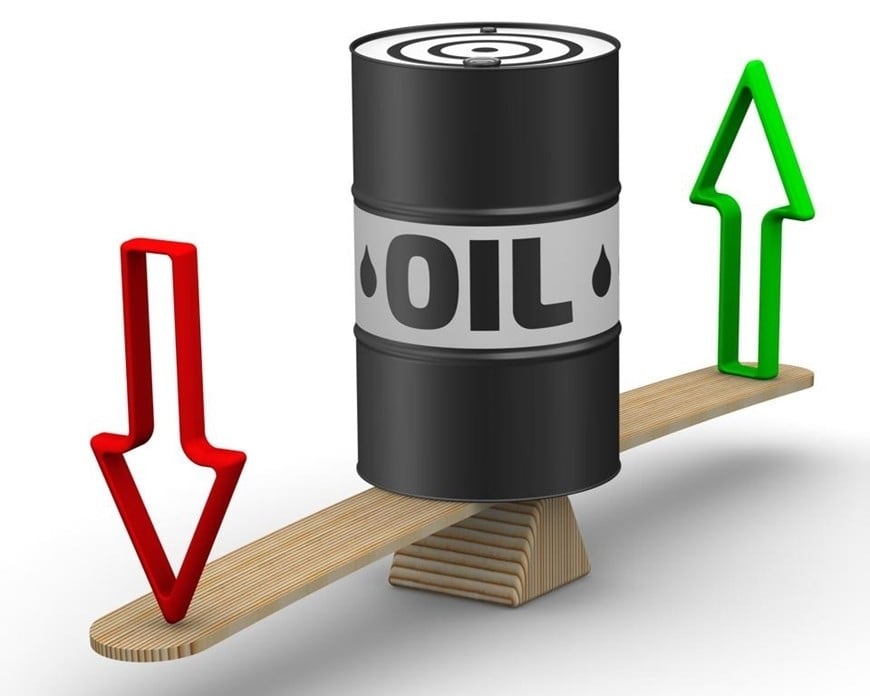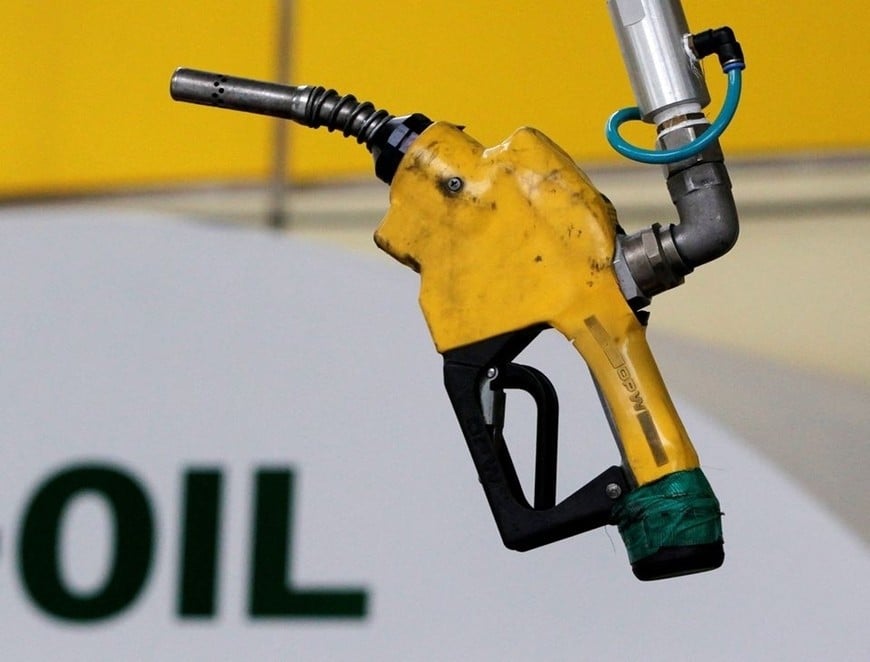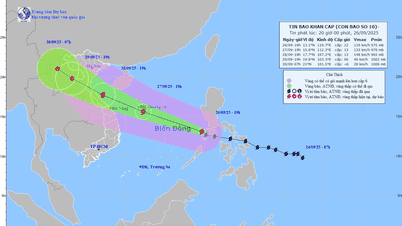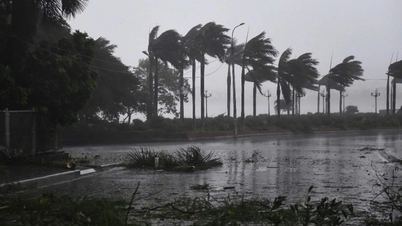World oil prices remain high due to Russia's restrictions on fuel exports. Domestically, gasoline prices have fallen to nearly VND20,000/liter, and oil prices have increased or decreased depending on the type.
World oil prices
World oil prices were almost flat in the trading session on September 25, after hitting a seven-week high, in the context of Russia announcing restrictions on fuel exports until the end of the year. However, the increase was restrained by new economic data from the US, reducing expectations that the US Federal Reserve (Fed) will continue to lower interest rates.
Brent crude oil prices rose slightly by 0.11 USD, or 0.16%, to 69.42 USD/barrel. Meanwhile, WTI crude oil prices fell by 0.01 USD, or 0.02%, to 64.98 USD/barrel.

Prices of both types of oil rose 2.5% in the trading session on September 24, reaching their highest levels since August 1, thanks to information about the unexpected decrease in crude oil inventories in the US and concerns that mutual attacks between Russia and Ukraine on energy infrastructure could disrupt supplies.
Oil prices continued to find support after Russian Deputy Prime Minister Alexander Novak announced that the country will impose a partial ban on diesel exports until the end of the year, while also extending the current ban on gasoline exports.
However, the oil price rally was somewhat restrained after the US Commerce Department released new data showing GDP grew 3.8% in the third quarter, higher than the initial estimate. This information caused the market to react by selling, according to Phil Flynn, senior analyst at Price Futures Group.

Stronger-than-expected US economic growth could make the Fed more cautious about further rate cuts. Last week, the Fed cut rates by 25 basis points, the first rate cut since December, and signaled that more cuts are on the way.
Pressure on oil prices also comes from expectations of increased supply, especially from Iraq and the Kurdistan region (northern Iraq).
On September 25, the Kurdistan Regional Government said it would resume oil exports within 48 hours, after reaching a tripartite agreement between the Iraqi Oil Ministry, the Kurdistan Ministry of Natural Resources and production companies.
“The return of supplies from Kurdistan has raised concerns about oversupply, sending oil prices slightly lower after hitting a seven-week high,” said Priyanka Sachdeva, senior market analyst at Phillip Nova.
Domestic gasoline prices
Domestic retail prices of gasoline on September 26 are as follows:
| - E5RON92 gasoline: No higher than 19,618 VND/liter - RON95-III gasoline: No higher than VND 20,165/liter - Diesel 0.05S: Not higher than 18,658 VND/liter - Kerosene: Not higher than 18,628 VND/liter - Mazut oil 180CST 3.5S: Not higher than 15,209 VND/kg |
The Ministry of Industry and Trade and the Ministry of Finance have just decided on the retail price of gasoline from 3 p.m. on September 25. Accordingly, gasoline prices have decreased to nearly 20,000 VND/liter, oil prices have increased or decreased depending on the type. Specifically, the price of E5RON92 gasoline has decreased by 368 VND/liter, RON95-III gasoline has decreased by 443 VND/liter, diesel oil has decreased by 47 VND/liter, kerosene has increased by 84 VND/liter and mazut oil has increased by 79 VND/kg.
According to the Ministry of Industry and Trade - Ministry of Finance, the world oil market in this management period is affected by main factors such as: OPEC+ increased oil exports; increased geopolitical tensions in the Middle East; continued military conflict between Russia and Ukraine... The above factors have caused world oil prices to fluctuate up and down depending on each product in recent days.
Since the beginning of 2025, domestic gasoline prices have undergone 37 adjustment sessions, including 15 decrease sessions, 17 increase sessions and 5 opposite sessions.
Source: https://baolangson.vn/gia-xang-dau-hom-nay-26-9-gia-xang-ve-sat-muc-20-000-dong-lit-5060033.html



![[Photo] Prime Minister Pham Minh Chinh attends the groundbreaking ceremony of two key projects in Hai Phong city](https://vphoto.vietnam.vn/thumb/1200x675/vietnam/resource/IMAGE/2025/9/27/6adba56d5d94403093a074ac6496ec9d)































































































Comment (0)